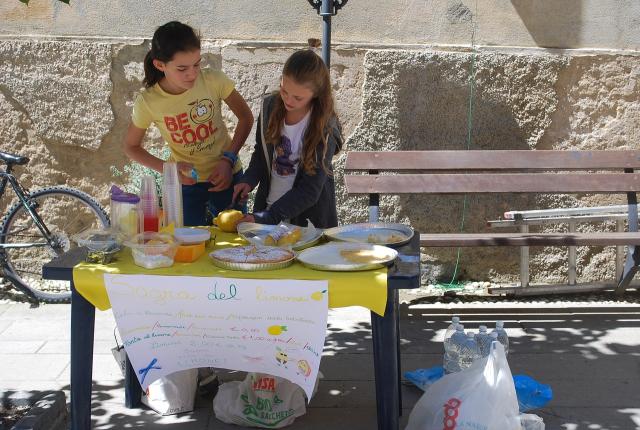Vicki Nelson writes about sharing life’s lessons of generosity with children this summer.

I don’t know about you, but the end of the school year always feels like a fresh start; a chance to leave behind the busyness and expectations of the school year, and find space and time to learn something new. This summer, why not build some generosity practices into your family’s summer days and see how it can impact you. Below are a few ideas.
Practice gratitude
The days are long, we are eating fresh produce from our gardens or nearby, and we may get to go camping or visit a cottage—summer’s bounty makes it impossible not to feel blessed and grateful. Talk to the children in your life about what you saw that day. Reflect on what was special, delicious, or beautiful. Say grace before meals or a prayer of thanksgiving around the campfire. For school-aged children, encourage them to journal about their summer adventures, so they can look back and feel grateful (plus some literacy practice doesn’t hurt).
Volunteer with your child
Find some time during the busy eight weeks off school to give back to your community. Help in a community garden growing food for the food bank. See if help is needed at a local summer camp. Mow the lawns and weed the gardens at your church. Check with local agencies that are feeding, hydrating, or housing people—are there ways your family can help?
Encourage your child to share their money
Whether they set up a lemonade stand, mow lawns, or simply receive an allowance for helping out around the house, talk to your child about sharing their abundance. Consider proportional giving (maybe they share a third of what they earn) or set a monthly amount that they allocate to their church, Mission and Service, or another cause they care about.
Practice kindness
Spend time helping others. Hold the door open for other people. Let someone go ahead of you in line. Have cash available to those with outstretched hands. Help a neighbour by mowing their lawn. Give your child the chance to talk about the experience of helping others. Ask your child, "Why do you think it's important for us to help others?" Or, "How did it make you feel to help others?" These questions will help them understand why their help makes a difference to other people.
Finally, a reminder that helping other people won't always earn praise. Explain that sometimes people won't thank them for their help. Even if your child's kindness isn't acknowledged, it's still meaningful. If you end up trying any of these things or something different, and have a story to share, please email us.
— Vicki Nelson, Community of Faith Stewardship Support for Pacific Mountain, Chinook Winds, Northern Spirit, Living Skies and Prairie to Pine Regions of The United Church of Canada.
The views contained within these blogs are personal and do not necessarily reflect those of The United Church of Canada.